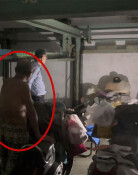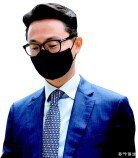Deputy Prime Minister Losing Ground
Deputy Prime Minister Losing Ground
Posted July. 15, 2005 03:02,
The voices of the head of the Korean economy are missing from the economic policy-making process.
Four months have passed since new Deputy Prime Minister and Economy and Finance Minister Han Duck-soo came to power, but his status as the economic head of Korea has not been well established yet.
It is the presidential office, prime ministers office, and the ruling party who are guiding the nations economic policies. His role as a mediator among economy-related government offices and agencies is missing as well. His belief in the open-door principle has failed to be applied to economic policies, and his leadership is yet to be demonstrated.
His reduced influence can be seen in most high profile issues such as the real estate polices, deregulation in the Seoul Metropolitan area, market openings in the service industry, and growth potential development.
Prime Minister Lee Hae-chan said on July 14 at a breakfast meeting of the Korea Chamber of Commerce and Industry, As the real estate market, especially the apartment market, is becoming unstable, I myself has taken charge of countermeasures two weeks ago. The ruling Uri Party also confirmed its will to control real estate policies.
To the party, administration, and the president, Economic Deputy Prime Minister is no longer a post that bears the ultimate responsibility in economic issues.
Even his statements do not sound very credible.
On April 29, Mr. Han said at a press conference that actual price-based taxes on capital gains will be reviewed only as part of a middle- or long-term tax revision.
However, after a mere five days, the National Economic Advisory Council presided over by President Roh settled the schedule for new taxation, announcing that taxes on capital gains will be levied based on market prices for multiple home owners from next year, and for every transaction from 2007.
He also underlined that the interest rate would never be raised, but the market interest rate went up, compromising his credibility in the market.
To make matters worse, on July 4, Mr. Han said, I heard from a presidential aide that the president would not mention about the disclosure of apartment construction costs. However, President Roh said at a meeting with chiefs of the press on July 7, The Uri Party pledged to make apartment construction costs transparent during the last general election campaign, and there is no reason not to.
The biggest reason for his shrunken authority is that President Roh does not help him.
One high-ranking official of the finance ministry complained, Nowadays, the prime ministers office is doing what we used to do, adding, Non-experts are meddling in economic policies in the name of negotiation through discussion, seriously deteriorating the efficiency of the policy-making process.
Some say that the presidential commissions putting their noses in policy implementation further undermined his status.
As the president does not recognize Mr. Han as the economic policy leader, the market does not have confidence in him either, said Kim Jong-seok, a business professor at Hongik University.
Another official said, I expected the deputy prime minister would guide policies in his own way by opposing or persuading Cheong Wa Dae or the ruling party on important issues, but I felt he ceded too easily.
Byong-Ki Lee Chi-Young Shin eye@donga.com higgledy@donga.com



![돈 뺏어간 96%가 자식·요양사·지인… ‘양자’ 신고해 상속 노리기도[히어로콘텐츠/헌트②-下]](https://dimg.donga.com/c/138/175/90/1/wps/NEWS/IMAGE/2025/12/15/132967464.1.jpg)
![‘딸’ 같아서…상가 담보로 내준 치매부부, 6억 털렸다[히어로콘텐츠/헌트①-下]](https://dimg.donga.com/c/138/175/90/1/wps/NEWS/IMAGE/2025/12/14/132963612.1.jpg)


